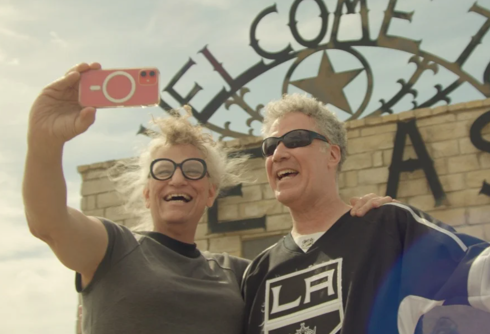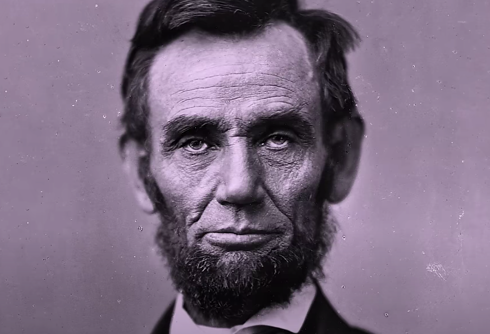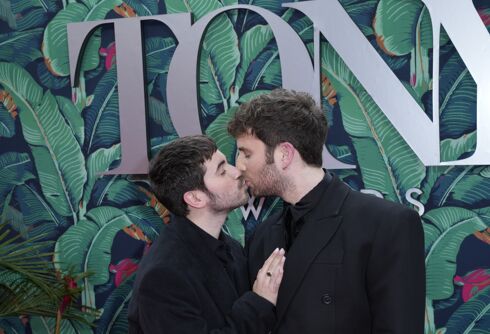I started losing my hair at age 19.
I was a freshman in college, and it was incredibly traumatic. It didn’t help that I was also finally starting to come to terms with being gay — at a time when most of the only other gay people I knew were dead or dying of AIDS.
Related:
The worst part of traveling while gay
The best part of travel is the connections you make with others. That’s harder when you can’t be completely honest.
But looking back now, many years later, I’m kind of glad I lost my hair early — but probably not for the reason you think.
Never Miss a Beat
Subscribe to our newsletter to stay ahead of the latest LGBTQ+ political news and insights.
I won’t give the actual reason until the end of this article.
I’m sure it’s still difficult to go bald, especially as a young man, but I suspect it was worse back then.
You can tell precisely who society hates from its jokes, but most of us don’t realize the volume of certain jokes until we’re the butt of them. And there were so many bald jokes — jokes about comb-overs, and toupees, and just how sad and horrifying it was to be bald. It was always a go-to sight gag.
That guy is wearing a toupee! Oh, my God, HOW PATHETIC!

Okay, I get the message, I thought at the time. There is no possible way anyone could ever find a bald man attractive.
Also, my hair was an unusual color, a very striking auburn. One of my first boyfriends compared it to the color of autumn leaves. More than once, people had stopped me on the street to say, “Oh, my God, your hair is fantastic! I’ve never seen that color before.”
And suddenly, before I’d even had a chance to be a sexual being, it was all falling out.
I’m embarrassed to admit how furiously I tried to avoid my fate as a bald man.
I went to multiple doctors to discuss hair transplants and an equal number of specialists to be fitted for different kinds of hair pieces. But the transplants were far too expensive, and I wasn’t convinced that even the best toupees looked natural. Plus, everyone would know I was wearing a toupee, and we all knew how pathetic that was.
I tried the hair-loss drugs minoxidil and finasteride, but neither did anything for me.
I also attempted several home remedies I’d read about, including one twice-weekly treatment that I did for six months, made from essential oils and cayenne pepper. It was exactly as painful as it sounds.
For months, I went for weekly treatments in the offices of this “doctor” who I will at least credit with great theatrics: He had all these vividly colored potions he would rub into my scalp and this vibrating machine he would run over my head.
Finally, he suggested a “special” cure that was five times the price, and at that point, even I wised up that not only was this guy not growing my hair back — I was being fleeced.

But I was still desperate.
Around this time, I saw an ad for a “secret” herb from an ancient Chinese mystic that supposedly cured baldness. I promptly sent a cashier’s check for $200 — to an address in China, no less. This was back when $200 was almost my monthly rent, and I definitely did not have that much extra cash to throw around.
Incredibly, a few months later, my check was returned uncashed. I guess even that ancient Chinese mystic thought, No, this is just too pathetic. I gotta send this guy’s money back.
At this point, in my mid-20s, I finally realized I had no choice but to accept reality. So I shaved my head like all the other balding gay guys and tried to somehow live with my fate. Then I was lucky enough to meet Michael, who always made it clear that he liked me exactly the way I was.
But then a funny thing happened: In the greater society, baldness slowly became less of a joke. In certain very rare cases, it even became — dare I say it? — sexy.
I give most of the credit for this to the gay male community. My community can sometimes frustrate me to no end — with its superficial obsession with youth and looks, and its sometimes adolescent fixation on sex. But in the ’90s and ’00s, gay men started normalizing and eroticizing baldness in a truly remarkable way.
And — as always happens — the greater culture eventually picked up on this too, highlighting and celebrating celebrities like Stanley Tucci, Jason Stratham, Mike Colter, Vin Diesel, Ed Harris, Corey Stoll, and Sean Evans, the host of that Hot Ones show on YouTube.
(I don’t know if other people find the Hot Ones’ host attractive, but I find him utterly adorable. It helps that he’s so smart and earnest.)
For a while in the ’00s, it seemed like to be a movie action hero, you had to be bald.

And then, of course, there was Patrick Stewart, the star of Star Trek: The Next Generation, who, incidentally, also started going bald at 19. Lucky for him, it didn’t matter because he’s one of the most charismatic human beings who has ever lived.
I’m not exaggerating when I say that no person has done more to normalize baldness than Patrick Stewart. Suddenly, the coolest, most decent character in the entire universe was bald. And no one cared!
Star Trek creator Gene Roddenberry was challenged by a reporter on the casting of bald Patrick Stewart as Captain Jean-Luc Picard, and I’ve always loved Roddenberry’s response.
“Surely by the 24th century, they would have found a cure for male pattern baldness,” the reporter said.
“No,” said Roddenberry, “by the 24th century, no one will care.”

Critics often accuse Hollywood of “social engineering” — trying to manipulate people with its content, portraying the world they want to be, not the one that actually exists.
And I hate it as much as anyone when a TV show or movie seems more like a lecture than a story. Thing is, I don’t think this is what Hollywood has done with baldness at all. I think it was the previous paradigm — where bald people were always the butt of cruel jokes, or the villain, never the hero — that was giving people an inaccurate view of the world.
I think an easy case can be made that Patrick Stewart, Stanley Tucci, Corey Stoll, and all the rest are objectively handsome men, bald or not. And Hollywood is simply acknowledging the obvious. If they’ve done any “social engineering,” it’s that they’ve showcased these men in ways that contribute to people’s expanding of their previous understanding of “hotness.”
And here’s a greater truth that these celebrities embody: confidence is sexy. So is self-acceptance.
No, seriously, this isn’t spin. Is there anything sexier?
Which brings me back to what I said at the beginning of this article: I’m now kinda sorta glad I lost my hair at such a young age.
But it’s not because it finally taught me confidence and self-acceptance — or not only that.
I never say my real age online because I’m a working screenwriter, and there is a ton of ageism in Hollywood, and there is absolutely nothing to be gained by saying exactly how old I am.
But let’s just say it’s been almost forty years since that picture of me at age 21, above. And these days, I don’t think I look my age.

Why am I aging more slowly now than before? Because I did a lot of my aging back in my 20s, when I prematurely lost my hair.
Well, that and my religious application of sunscreen and also my nightly retin-A regimen. A good diet and exercise probably help too.
Which isn’t to say that looking young is the end-all and be-all. A female friend my age recently confessed to me: “I know I’ve lost a lot of my looks, but you know what? It’s been liberating. I never realized until my looks were gone how exhausting all that was — all the attention I received from men, and also how much effort I put into looking the way I did. Now I go through the world on my own terms, and honestly, I like it so much better.”
Anyway, that’s the reason I like having lost my hair earlier: so I can seem to age more slowly now. I also don’t have to worry about bald spots, greying hair, and receding hairlines, like almost every other aging male friend I have.
I already did my time in that prison.
This is ironic because I was setting this essay up to be one about self-acceptance, and here I am kind of indulging in vanity again.
Oh, well, those messages of our youth die hard, don’t they?
Fortunately, I think honesty is sexy too.
Brent Hartinger and Michael Jensen are a gay “digital nomad” couple — two men who travel the world continuously, living in different countries for anywhere from one to three months at a time. Subscribe to their newsletter at BrentAndMichaelAreGoingPlaces.com.
Don't forget to share:














